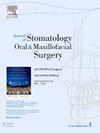重温 ChatGPT:使用 ChatGPT-4 查找医学科学文章中的参考文献并编辑语言。
IF 1.8
3区 医学
Q2 DENTISTRY, ORAL SURGERY & MEDICINE
Journal of Stomatology Oral and Maxillofacial Surgery
Pub Date : 2024-10-01
DOI:10.1016/j.jormas.2024.101842
引用次数: 0
摘要
学术优势的获得在很大程度上依赖于学术资源的可获取性,以及通过准确无误的语言表达来表达研究成果。尽管现代工具(如 "出版或毁灭 "软件程序)能根据特定关键词熟练地查找学术论文,但它们往往无法提取包括重要参考文献在内的全面内容。语言精确性的挑战仍然是一个突出的问题,特别是对于母语非英语的研究人员撰写的研究论文,他们可能会遇到用词错误。本手稿有两个目的:首先,它重新评估了 ChatGPT-4 在检索特定研究课题的相关参考文献方面的有效性。其次,它介绍了一套语言编辑服务,这些服务能熟练纠正用词错误,确保研究成果的表述精炼。文章还提供了制定精确查询的实用指南,以降低语言使用错误和包含虚假参考文献的风险。在不断发展的学术话语领域,利用 ChatGPT-4 等先进人工智能的潜力可以大大提高科学出版物的质量和影响力。本文章由计算机程序翻译,如有差异,请以英文原文为准。
ChatGPT revisited: Using ChatGPT-4 for finding references and editing language in medical scientific articles
The attainment of academic superiority relies heavily upon the accessibility of scholarly resources and the expression of research findings through faultless language usage. Although modern tools, such as the Publish or Perish software program, are proficient in sourcing academic papers based on specific keywords, they often fall short of extracting comprehensive content, including crucial references. The challenge of linguistic precision remains a prominent issue, particularly for research papers composed by non-native English speakers who may encounter word usage errors. This manuscript serves a twofold purpose: firstly, it reassesses the effectiveness of ChatGPT-4 in the context of retrieving pertinent references tailored to specific research topics. Secondly, it introduces a suite of language editing services that are skilled in rectifying word usage errors, ensuring the refined presentation of research outcomes. The article also provides practical guidelines for formulating precise queries to mitigate the risks of erroneous language usage and the inclusion of spurious references. In the ever-evolving realm of academic discourse, leveraging the potential of advanced AI, such as ChatGPT-4, can significantly enhance the quality and impact of scientific publications.
求助全文
通过发布文献求助,成功后即可免费获取论文全文。
去求助
来源期刊

Journal of Stomatology Oral and Maxillofacial Surgery
Surgery, Dentistry, Oral Surgery and Medicine, Otorhinolaryngology and Facial Plastic Surgery
CiteScore
2.30
自引率
9.10%
发文量
0
审稿时长
23 days
 求助内容:
求助内容: 应助结果提醒方式:
应助结果提醒方式:


